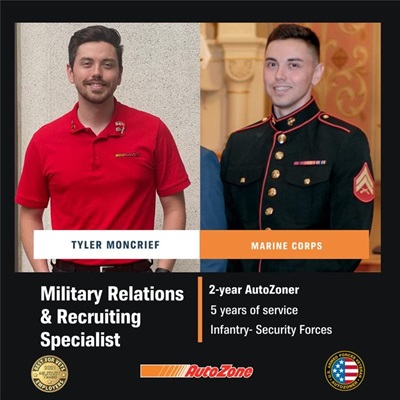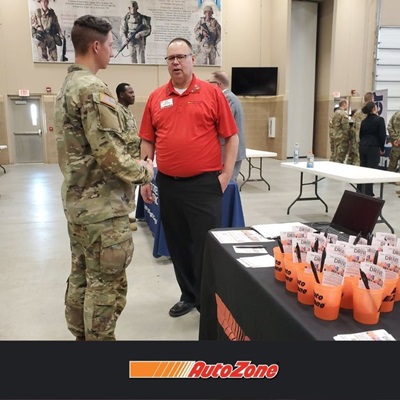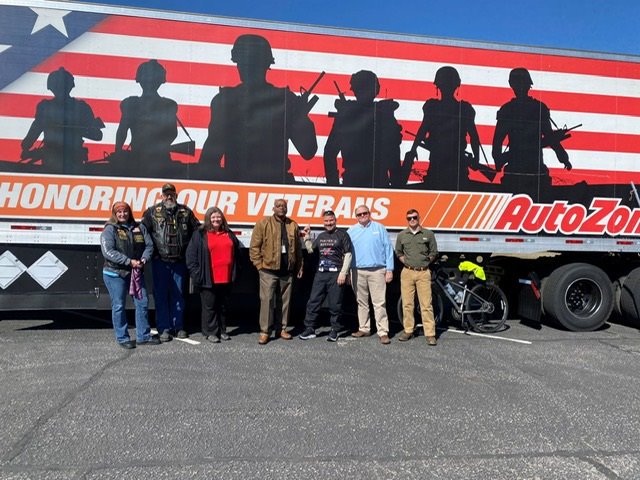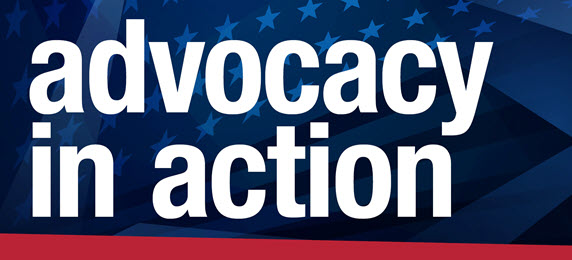
Service to Service: Why Veteran Talent is Right for the Auto Care Industry
Let’s face it – sourcing, hiring and retaining a dedicated, well-trained workforce is tough, especially these days. Every recruiter is looking for talent. The automotive aftermarket has a great story to tell – during the COVID pandemic, when other companies had to close shops and stores, our industry was deemed essential by the federal government.
Our AutoZoners provided essential services and goods to keep the driving public on the road and continued to serve customers through the hardest days of COVID. They showed up every day to care about people and showed compassion and empathy for the challenges faced by our nation. Today, that caring and service continue – they are the hallmark of our industry.

When I was hired as the Military Relations and Recruiting Specialist at AutoZone
this year, idea after idea began flooding my brain about how I could help my company hire more veterans. As I began learning about AutoZone’s current veteran population, I expected to see us match the national labor market (veterans comprise 6% of the U.S. workforce*). In fact, almost 9% of AutoZone’s workforce are veterans! As much as I’d like to take credit for that impressive number, it predates my position, so something else is responsible. What I’ve realized is that not only is AutoZone’s company culture a perfect fit for veterans; our entire industry is a great place for those who are current or former military.
I expected to see us match the national labor market (veterans comprise 6% of the U.S. workforce*). In fact, almost 9% of AutoZone’s workforce are veterans!
Tyler Moncrief
While some roles in our industry are obvious candidates for certain military occupational specialties (MOS), for example, vehicle mechanics, electronics technicians, heavy equipment operators – in our industry there is a common thread that attracts servicemembers regardless of occupational specialty. That thread is service – the willingness and determination to serve others. The automotive aftermarket helps people by providing the parts, products and services that keep their vehicles on the road and their lives on the move.
8.4
unemployed veterans in the U.S. labor market are seeking fulfilling work
Communication and Training are Key

Emphasize how veterans fit in the industry and your organization:
- embrace soft skills
- highlight structured career paths
- set clear standards
While not every veteran exits the military with a hard skill specific to the auto care industry, many have invaluable soft skills. Most have had to learn and adapt to new work environments regularly and will come to you ready to learn. They are resilient and resourceful, but like all new employees, need training in their job role.
Pay Attention to Onboarding and Transition
Coming from the highly-structured military environment into the more flexible civilian workforce can be an odd transition for some. It’s important to set clear expectations for roles within your organization and lay out structured career paths where possible. Promotion standards are straightforward throughout the military and veterans appreciate a clear goal toward which to work.
Leverage Available Resources
Develop a relationship with your Regional Veterans’ Employment Coordinators (RVECs), whose job is to engage with employers and connect them to resources that support veterans’ employment and connect with an American Job Center (AJC).
Develop relationships with the transitioning office if you are near a base and let the career counseling teams at local colleges and technical schools know you are hiring.
Developing a successful military hiring strategy requires sticking to a few simple best practices to start hiring more veterans in your organization. Our industry, which is centered on serving others, is primed and ready to serve veteran talent. It’s up to each of us to share our story and demonstrate why the automotive aftermarket is the right fit for those who have served and protected America.

*Department of Labor: https://blog.dol.gov/2021/11/9/veterans-in-the-labor-force-6-stats
Auto Care Association provides tools and resources that can help grow and improve your company’s recruitment efforts. Visit our Hiring Veterans page to learn more about tips and/or resources that can assist with your recruitment efforts.
Career fields in the auto care industry include customer service, engineering, finance, human resources, inventory management, manufacturing, marketing, research and development, retail, sales, supply chain, technical support, vehicle repair and more. Check out current open positions.

Your Association's government affairs staff works 24/7/365 on your behalf to fight policies and regulations that may be harmful to your business. Here you'll find the latest updates on their issue-related work including testimonies, hearings, meetings, comments and actions.
More posts
Content
-
2021 Auto Care Advocacy Report
March 24, 2022Advocacy is essential, and by adding your voice, our impact adds up. This report details our 2021 efforts across all three facets of advocacy: grassroots, lobbying and PAC. However, in order to be effective, we must have your support and engagement. The 2021 Advocacy Report details ways you can get involved - and we made it as easy as 1, 2, 3.
